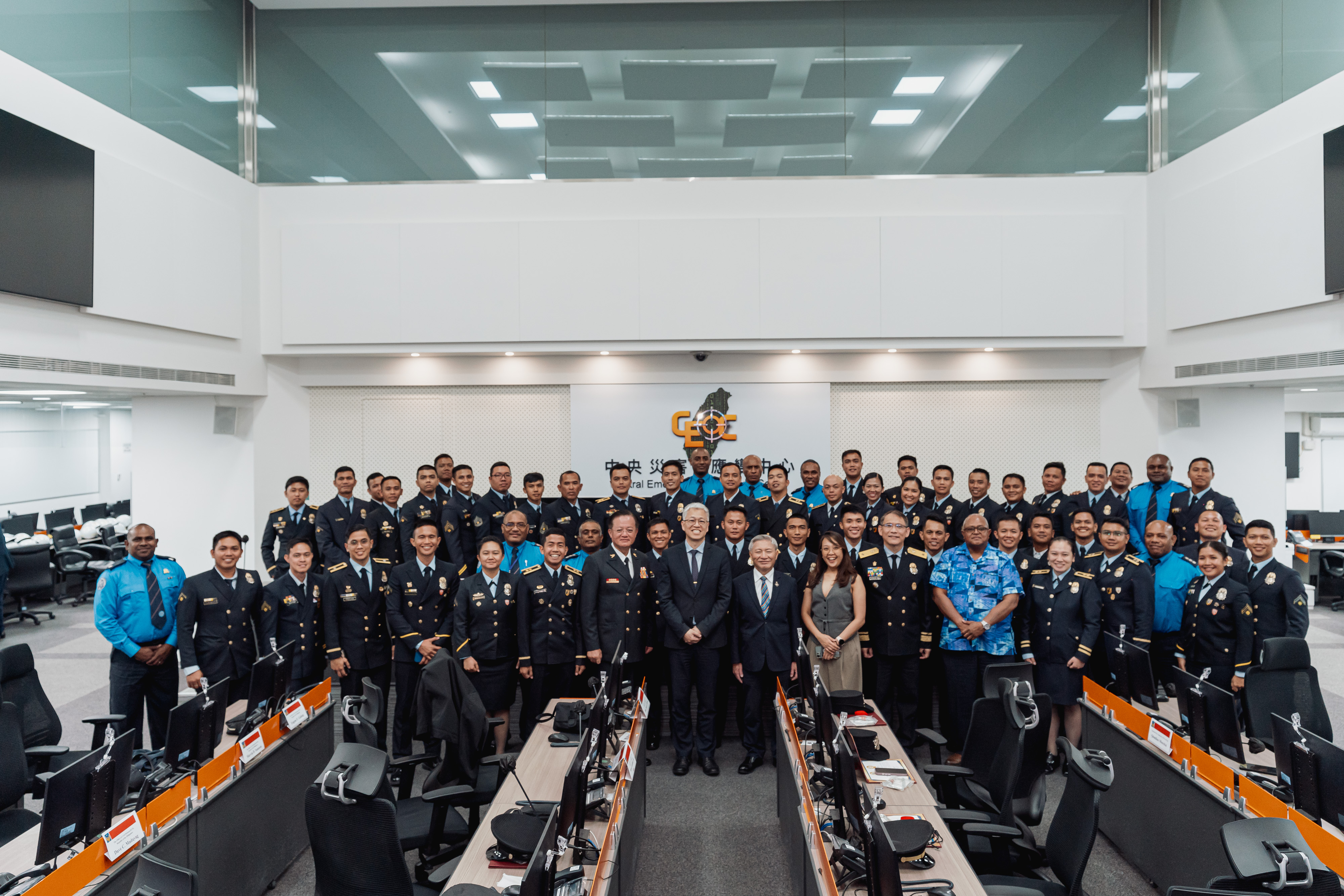
The “Taiwan–Philippines–Fiji Joint Training Program on Collapsed Structure Search and Rescue”, co-hosted by the Ministry of Foreign Affairs, the National Fire Agency of the Ministry of the Interior, the Bureau of Foreign Trade of the Ministry of Economic Affairs, the Office of Trade Negotiations of the Executive Yuan, and the Taiwan-Asia Exchange Foundation (TAEF), held its closing ceremony yesterday, September 19. Over the course of the program, 46 firefighters from the Philippines and 7 firefighters from Fiji participated in advanced training courses and professional exchanges.
The closing ceremony featured remarks by Deputy Minister Tang-An Wu of the Ministry of the Interior; Assistant Trade Representative Chun Shou Lin of the Office of Trade Negotiations, Executive Yuan; Director-General Huan-Chang Hsiao of the National Fire Agency; Deputy Counselor Marco Wang of the Ministry of Foreign Affairs; Former Deputy Mayor Guang-Yao Chang of Taichung City and Financial Director of the Taiwan Association for Fire Development and Exchange; Director Atty. Kyra Vernice Salayog for Consular Services at Manila Economic and Cultural Office; Chief Executive Officer Puamau Tagivetaua Sowane of the National Fire Authority (NFA) of Fiji; and Deputy Chief Wilberto Kwan Tiu, for Operations of the Bureau of Fire Protection (BFP), Republic of the Philippines.
Deputy Minister Tang-An Wu praised the program as “not just a training, but a milestone of disaster collaboration.” He commended the 49 Filipino and 7 Fijian firefighters for their participation alongside experts from Singapore and Turkey, noting that “after the training and the drill, you are ready for future challenges.” Highlighting past mutual aid with Turkey, he stressed that “there is no boundary for disaster…we need to support one another.” He announced Taiwan’s proposal for a second-phase MOU and the launch of a world alliance for disaster management, inviting partners to “build a safer and more resilient Pacific region and showcase this spirit to the world.” mastered will save countless lives, and the friendships you have built will show their value in future international collaborations.”
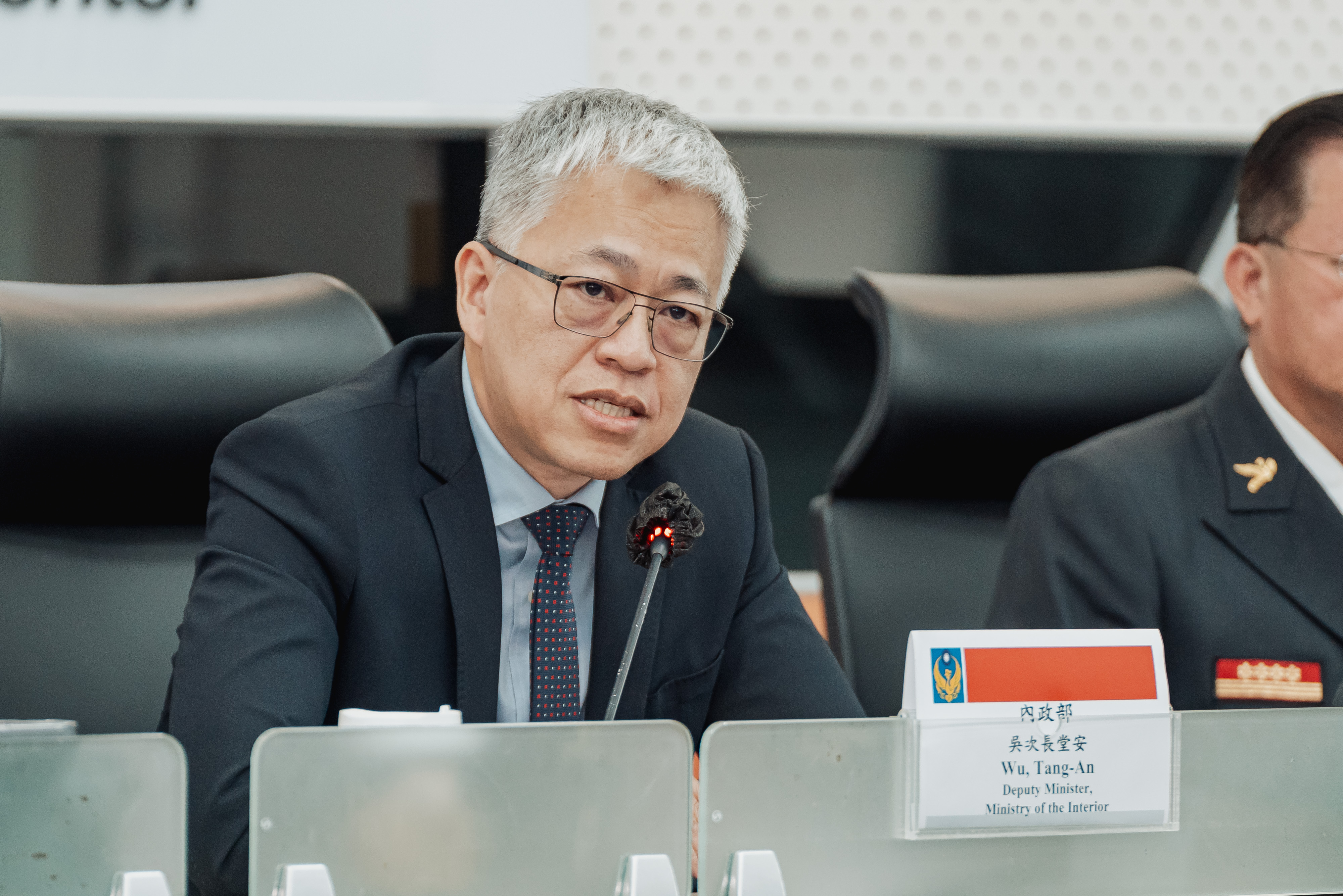
Assistant Trade Representative Chun Shou Lin congratulated the trainees on completing an intensive course that demands “not only professional skills, but also strong determination and selfless service.” He praised participants from Taiwan, the Philippines, and Fiji for enhancing capabilities while forging “strong friendship and mutual trust through working side by side,” calling this the program’s most valuable achievement. Noting that countries across the Pacific Ring of Fire face increasingly frequent and complex disasters, Mr. Lin underscored that by strengthening search-and-rescue readiness and disaster preparedness together, “we not only protect our people, but also contribute to regional safety and stability.” He expressed sincere gratitude to the instructors and staff whose professionalism made the training a success, and looked ahead to deeper exchanges and cooperation: “Let us work hand in hand to safeguard more lives.”
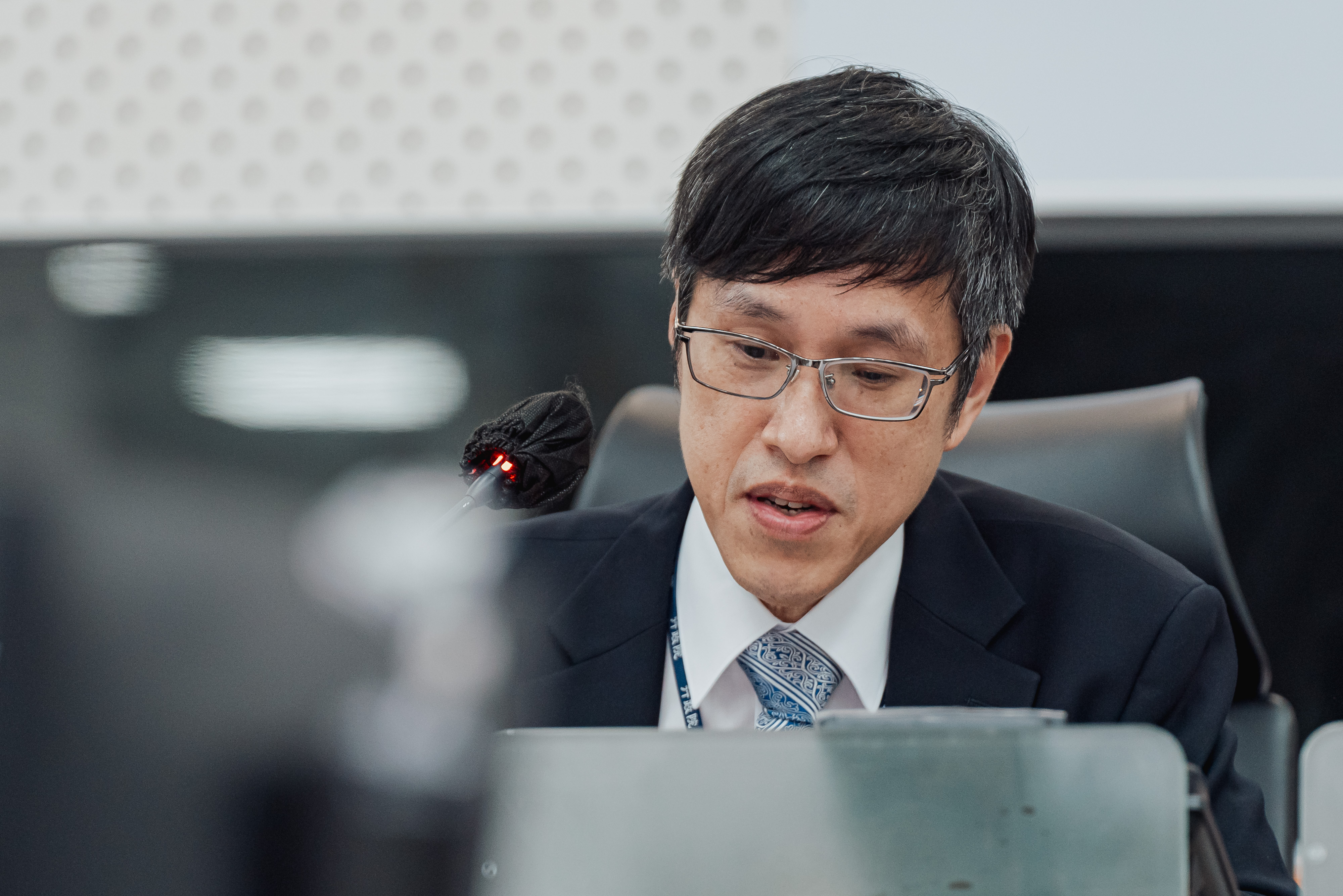
Director-General Mr. Huan-Chang Hsiao applauded the trilateral program as an international effort that “goes beyond drills to build lasting partnerships and shared practice,” noting that experts from Taiwan, Singapore, and Türkiye joined the courses and that the venue itself is an Emergency Operations Center symbolizing real-world readiness. He welcomed Fiji’s participation—“an honor for Fiji’s firefighters and for us”—and highlighted growing exchanges with partners such as the Hawaii Emergency Management Agency (HI-EMA), observing that island jurisdictions “share the same emergency mindset.” Mr. Shao affirmed plans to launch an international disaster management alliance next spring as an open platform for knowledge-sharing, and announced that his former Taichung mayoral colleague will donate rescue equipment to both the Philippines and Fiji. He closed by urging continued coordination: “Let’s keep sharing lessons learned so we can do more—together—for regional safety and resilience.”
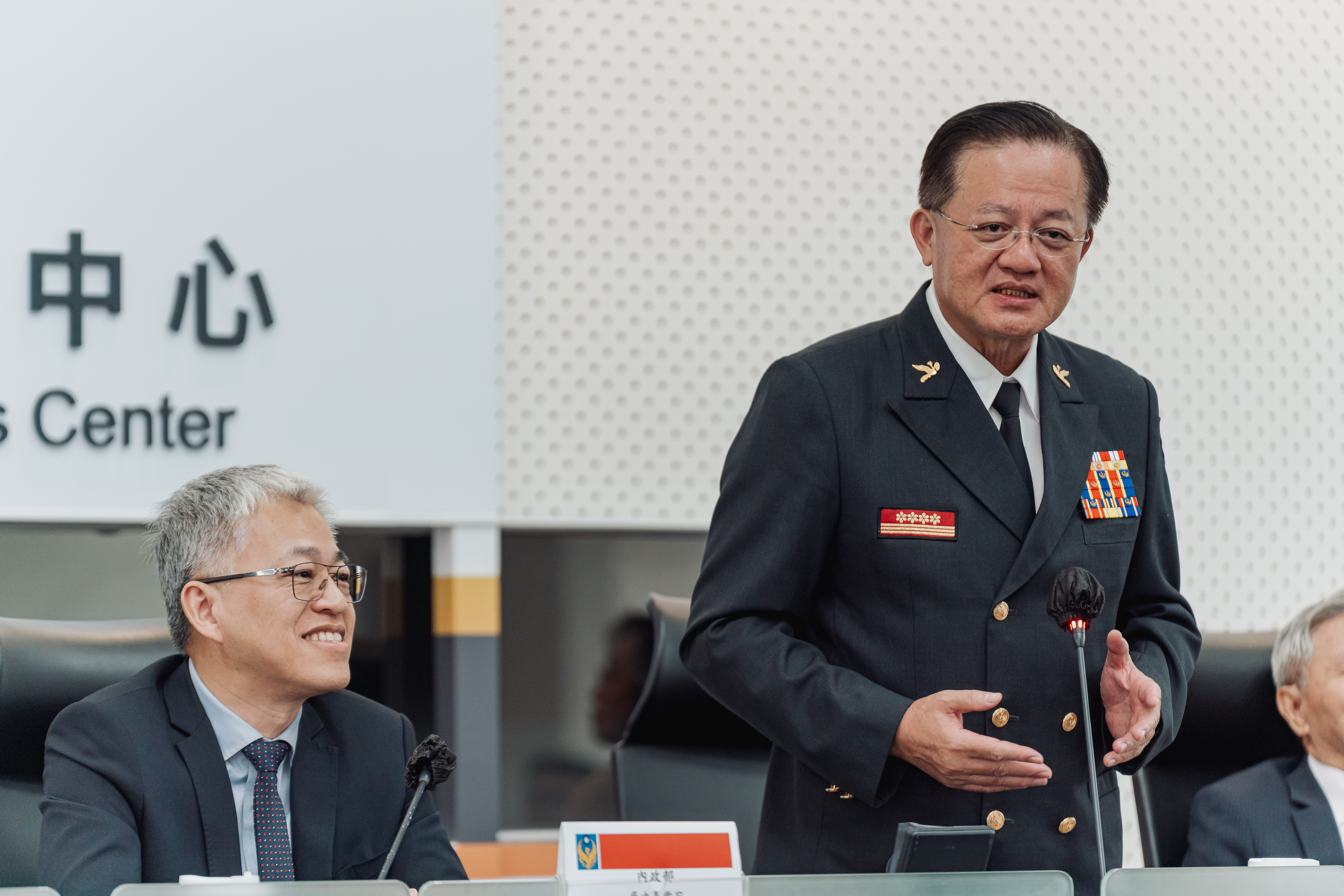
Deputy Counselor Marco Wang congratulated participants from the Philippines and Fiji on completing the two-week program at Taiwan’s National Fire Agency Training Center. He noted that exchanging expertise in collapsed structure rescue “broadens the possibilities of future cooperation,” and praised the firefighters’ training program as “one of the most cordial and fruitful collaborations” under Taiwan’s New Southbound Policy. Since 2019, Taiwan and the Philippines have trained hundreds of firefighters, and with the recent firefighting MOU, Fiji joined the program for the first time. Stressing that the three island nations share frontline challenges of climate change, Mr. Wong said their cooperation highlights a common commitment to sustainability, disaster management, and Indo-Pacific resilience, before wishing all trainees health and success in their future service.
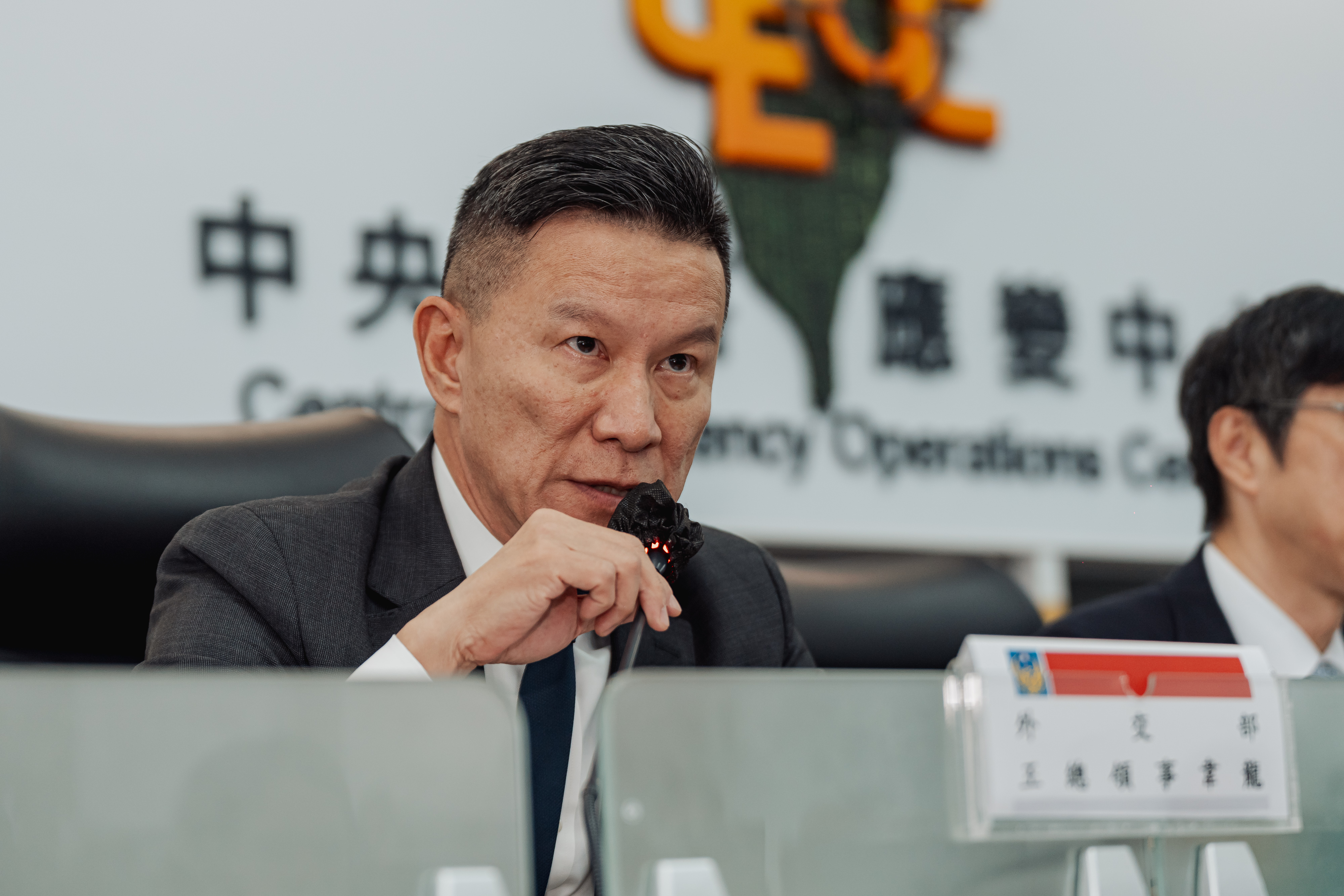
Former Deputy Major Chang Guang Yao expressed his honor to take part in the program and reaffirmed his long-standing commitment to public service, even after leaving government office. Now a businessman and president of Taiwan Association for Fire Development and Exchange, he shared that he has mobilized friends and colleagues to support Taiwan’s disaster preparedness efforts, reflecting his belief that private and public sectors can work hand in hand for community safety. Mr. Chang emphasized that his association has donated rescue tools and equipment to aid participants in their future missions, noting his hope that these resources will be of real help to their public service. He closed by expressing appreciation for the trainees’ dedication and wishing them success as they carry their new skills into disaster response work.
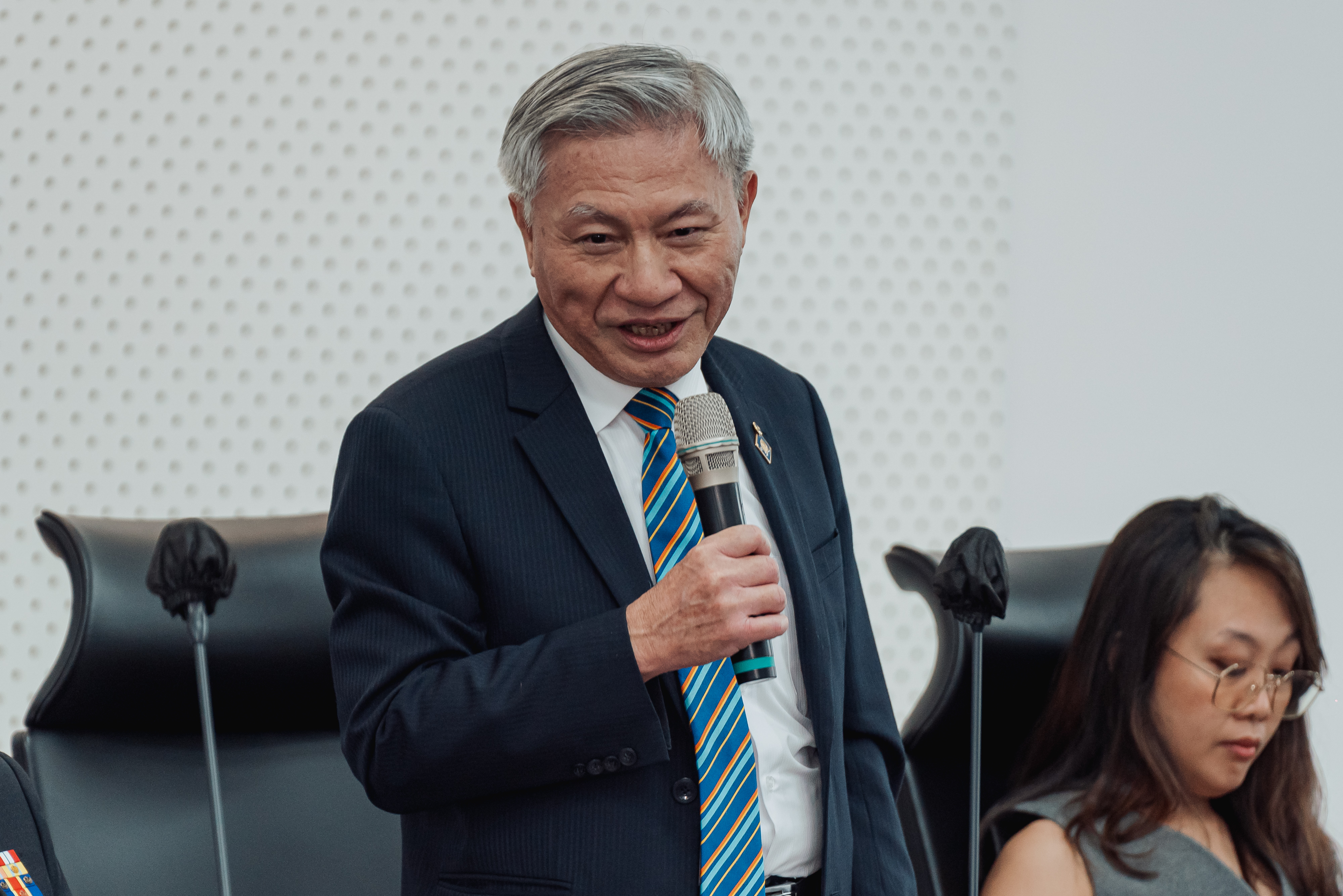
Director Kyra Vernice Salayog conveyed appreciation on behalf of Chair Cheloy Garafil, saying, “Thank you so much to Taiwan for always inviting us to events such as this.” She highlighted Taiwan’s global reputation for disaster preparedness and its long record of extending support to neighbors, recalling that “during the pandemic, Taiwan was able to help the Philippines by sending face masks” and is now sharing advanced technology and training with the Bureau of Fire Protection. Director Salayog praised the value of the 13-day program, noting her confidence that Filipino officers “have learned a lot from Taiwan’s disaster preparedness.” She also shared a personal anecdote from her first earthquake experience in Taiwan in 2019, recounting how she rushed downstairs after receiving an early warning alert while her Taiwanese neighbors calmly stayed put, a memory that showed her that “Taiwan is so used to earthquakes and always equipped with the right technology and systems.”
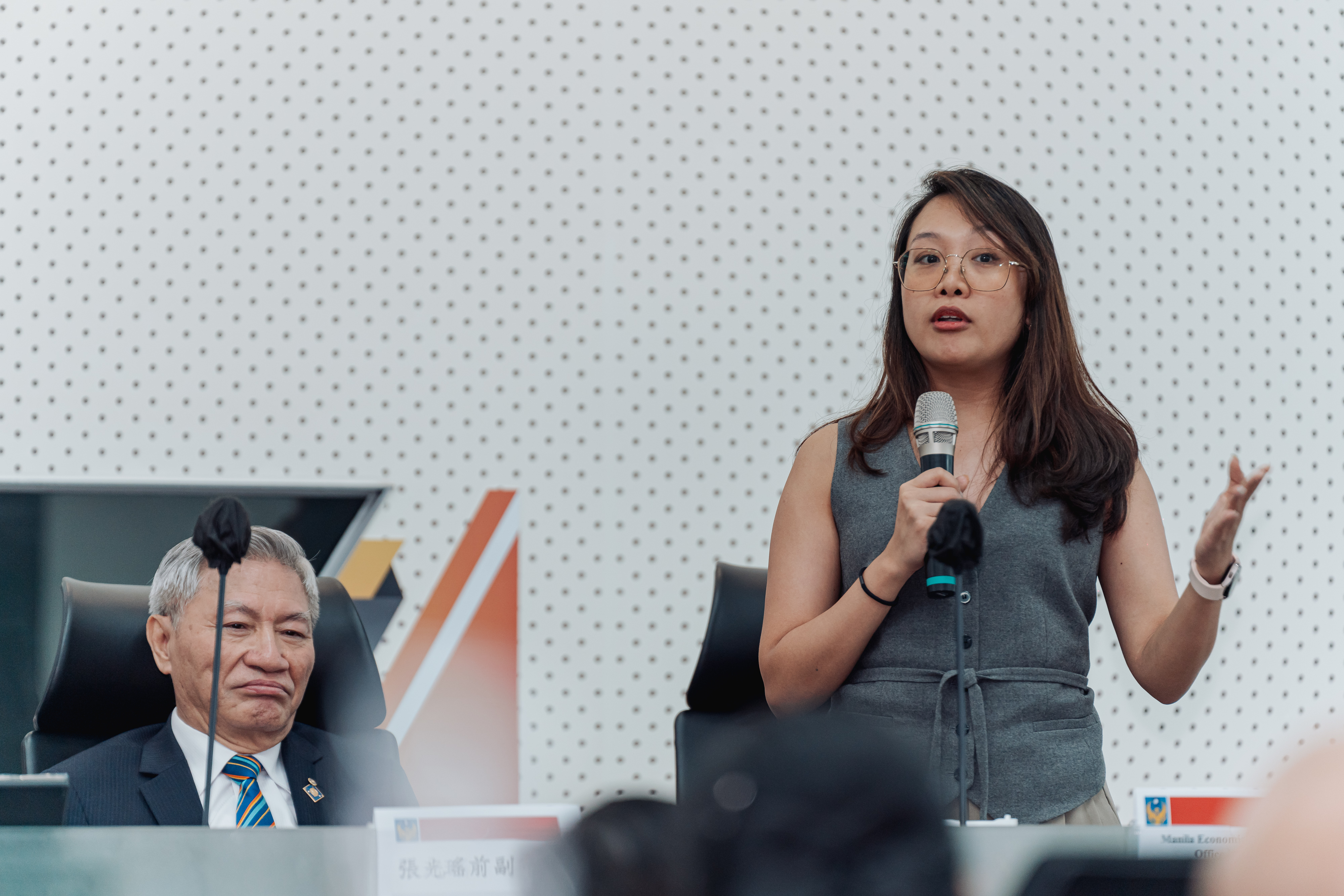
Chief Executive Officer Puamau Tagivetaua Sowane called the occasion “a very special moment for Fiji, for myself, and for our Fiji firefighters,” recalling how the journey began almost five years ago when Fiji sought international partners to train its personnel as certified EMTs and in urban search and rescue. He recounted meeting counterparts during the World Fire Congress in Washington, D.C., and how that encounter led him to Taiwan’s National Fire Agency, where, as he put it, “the magic starts.” Impressed by Taiwan’s training academy, he insisted that “finance is not a limitation when we try to make our dream come true,” and last year Fiji signed an MOU with Taiwan to formalize cooperation. Since then, ten Fijian firefighters have been certified as EMT-1 and seven more trained in urban search and rescue, critical skills he noted are essential for small island states facing climate change and rapid urbanization. Expressing gratitude, he affirmed, “we must thank the Director General and the government of Taiwan for accepting Fiji to be part of your plan,” and pledged to return with new teams in the coming years to deepen training and cooperation.
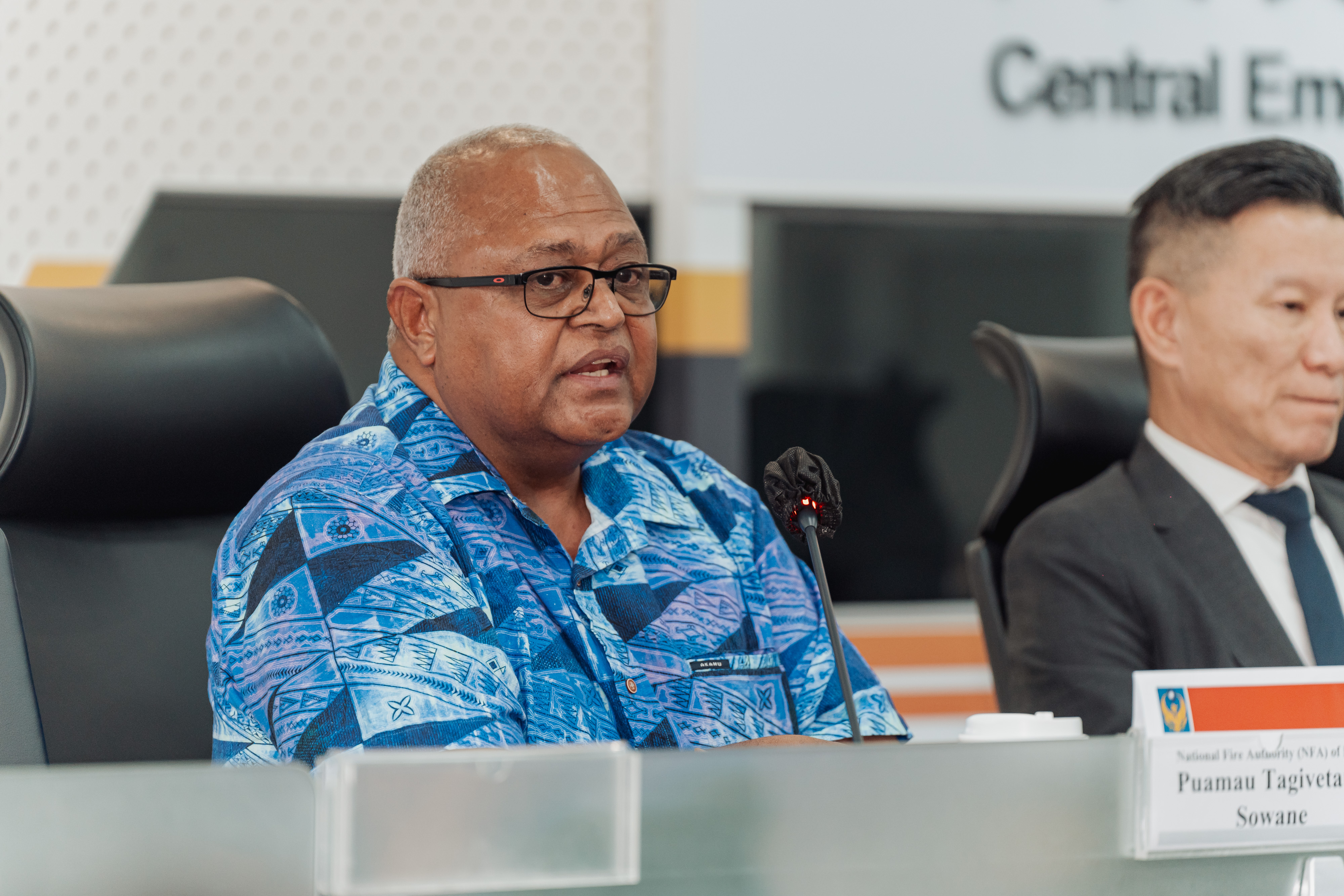
Deputy Chief Kwan Tiu reflected on the long journey of cooperation with Taiwan, recalling that the Joint Training Program was “a dream that came true back in 2016 and has since unfolded into another layer of success.” He emphasized that the value of the training lies not only in sharpening technical expertise but in instilling “the nobility and essence of our profession,” reminding graduates that their mission goes beyond skills to embody leadership, service, and moral responsibility. Drawing on his own experience of major fire incidents, he stressed that “even saving one life is a noble and heroic act,” underscoring the human cost and moral weight of their duty. Looking at the broader regional context, he reaffirmed that “disasters know no boundaries, and as responders, neither should we,” calling the program a living example of solidarity and international cooperation that strengthens both professional capacity and shared resilience across the Indo-Pacific.
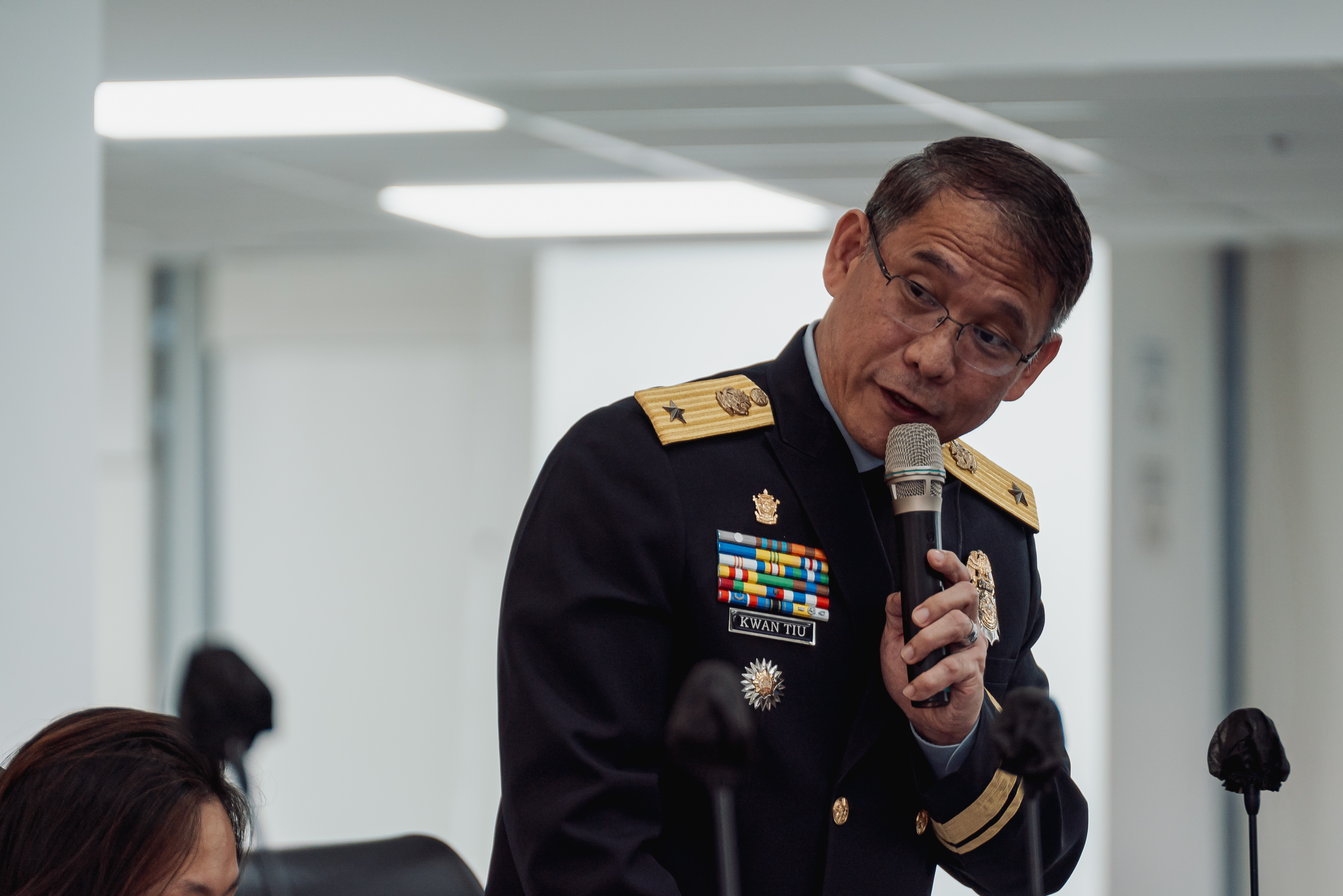
The closing ceremony concluded with a symbolic gift exchange among participating institutions. The Taiwan Fire Protection Development and Exchange Association presented the National Fire Authority (NFA) of Fiji and the Bureau of Fire Protection (BFP) of the Republic of the Philippines with an Electric Rebirth Tool and carabiners for all program participants. In addition, the Taiwan National Fire Agency and the National Fire Authority of Fiji exchanged souvenirs as tokens of their enduring friendship, symbolizing mutual trust and the deepening of regional partnerships.
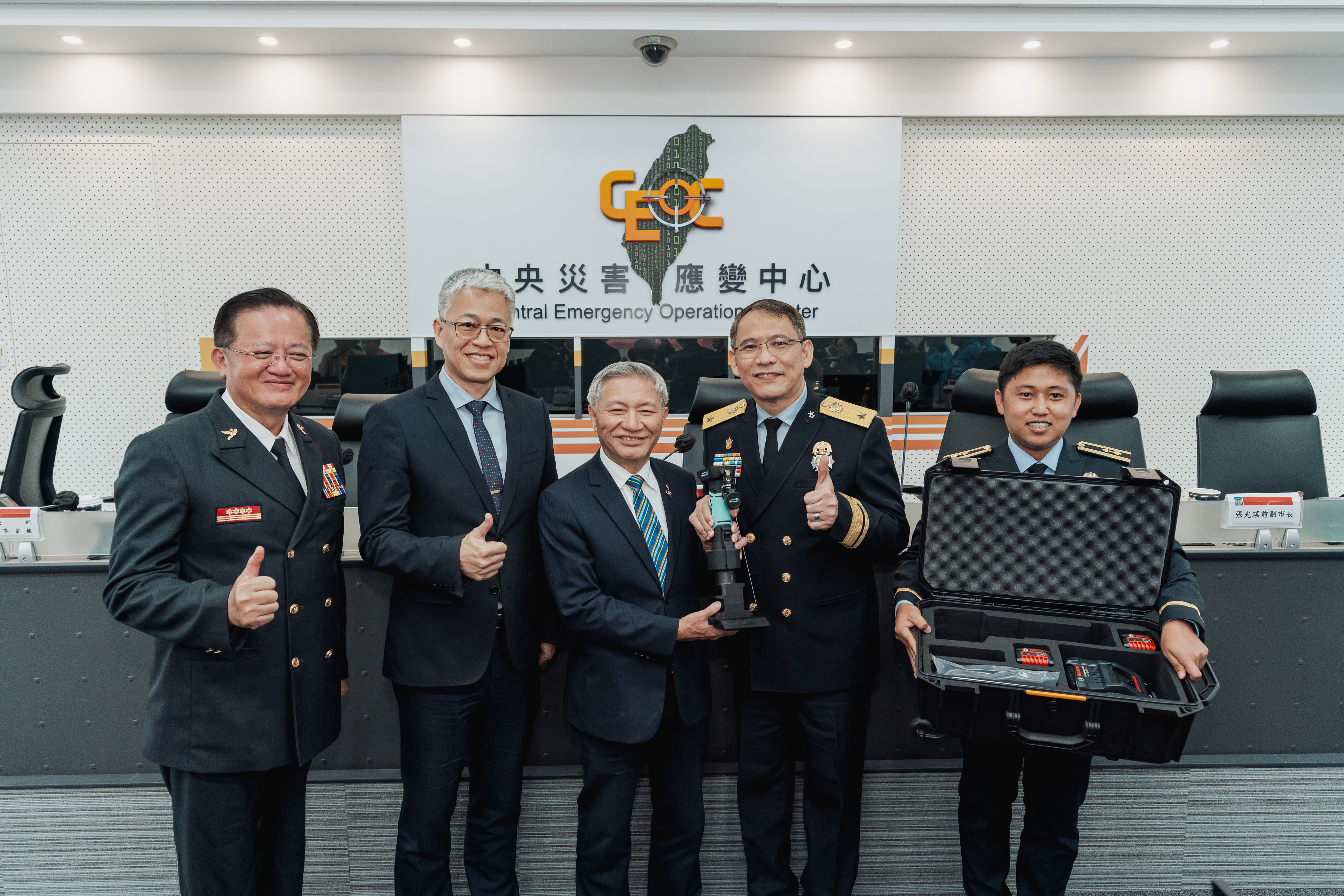
Taiwan–Philippines–Fiji Joint Training Program Background
The Taiwan–Philippines–Fiji Joint Training Program (JTP) featured sessions included fire investigation, emergency drills, and post-disaster reconstruction, further strengthening the joint disaster response capacity of Taiwan, the Philippines, and Fiji. This program marks a new milestone in trilateral disaster response cooperation, expanding Taiwan’s long-standing partnership with the Philippines to now include Pacific partners such as Fiji. Anchored in the Regional Resilience Corridor of Taiwan’s New Southbound Policy Plus (NSP+), led by the Taiwan-Asia Exchange Foundation (TAEF), the program focuses on early warning, response coordination, and the use of emerging technologies like drones and unmanned vehicles to strengthen regional preparedness. Since 2023, TAEF and the National Fire Agency have co-hosted international training programs with Japan, Vietnam, and the Philippines, building frontline capacity across partner countries. With Fiji’s participation in 2025, the JTP extends this network into the Pacific region, reinforcing Taiwan’s Indo-Pacific resilience vision and its commitment to building a people-centered, cross-border disaster cooperation framework.